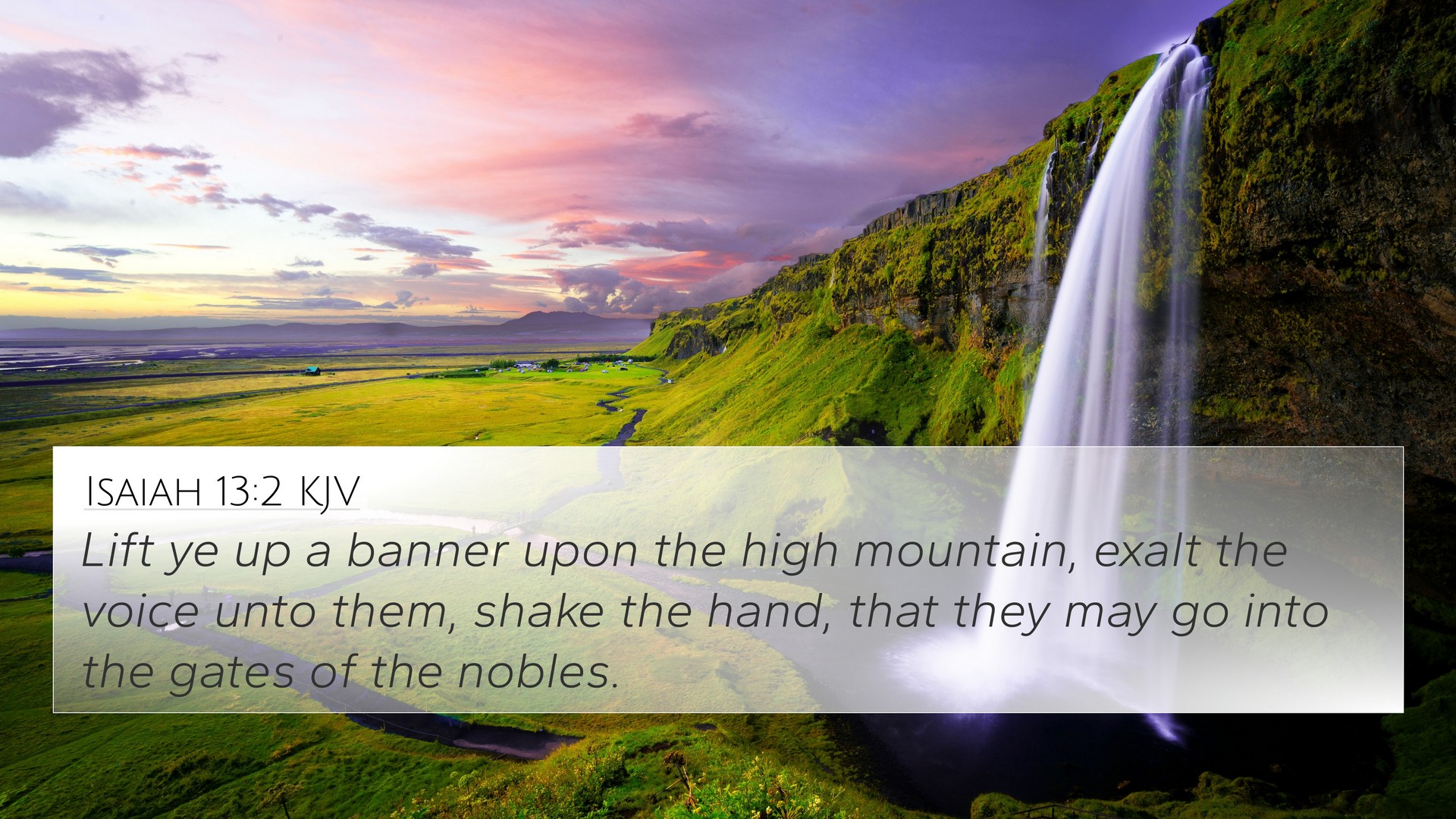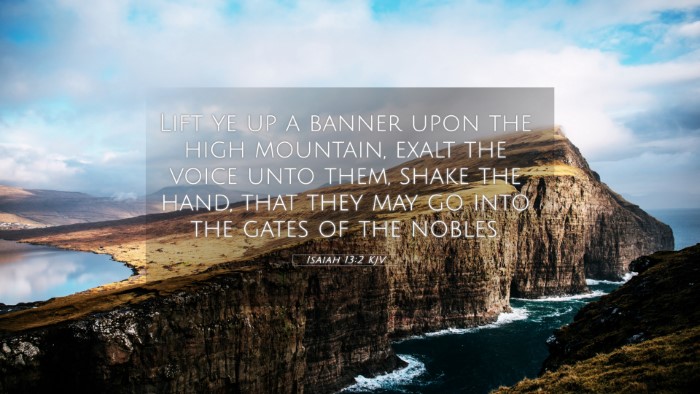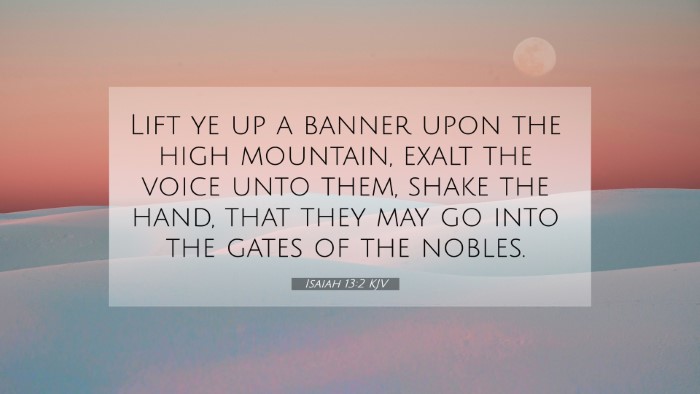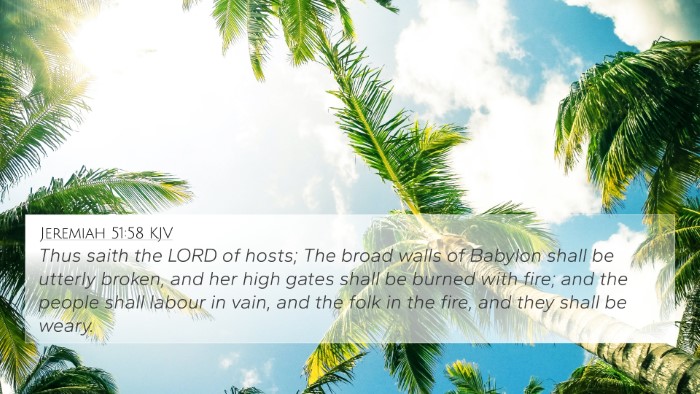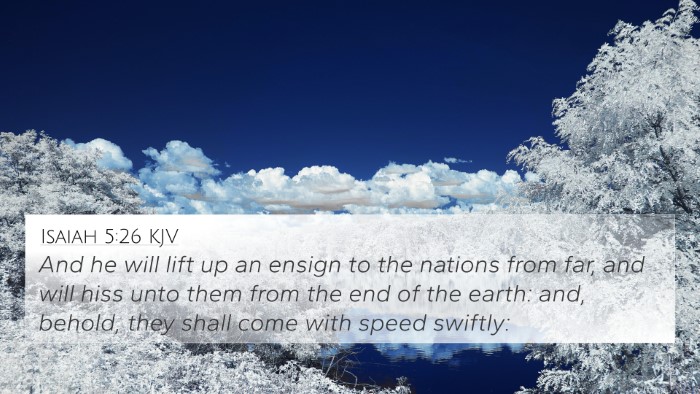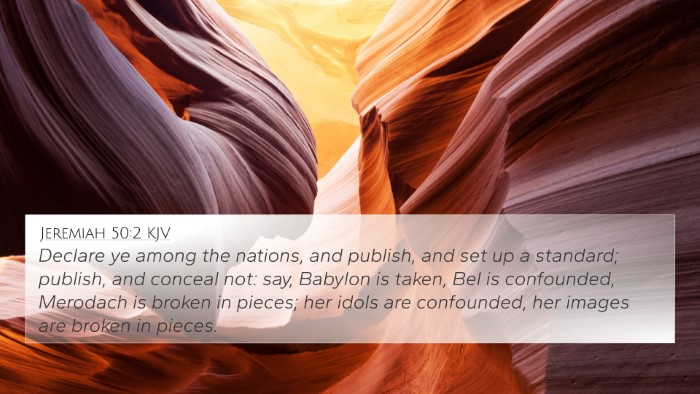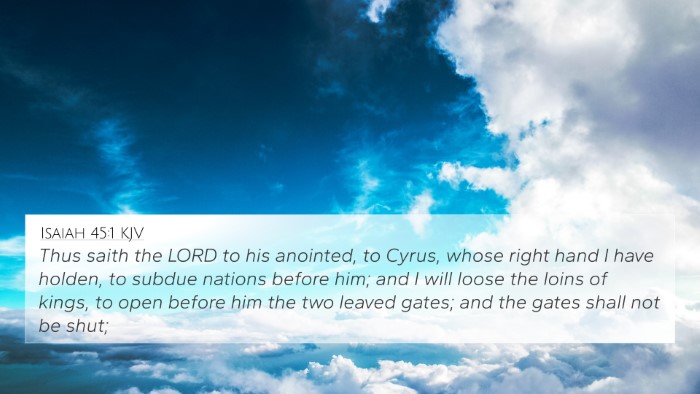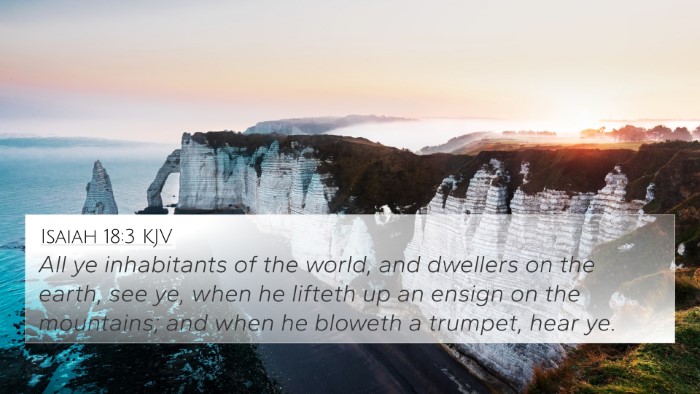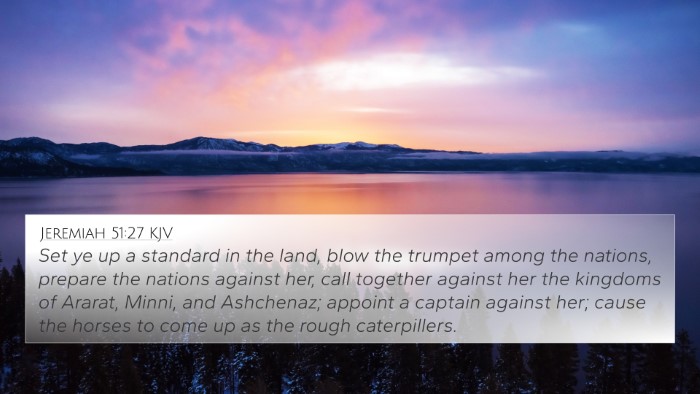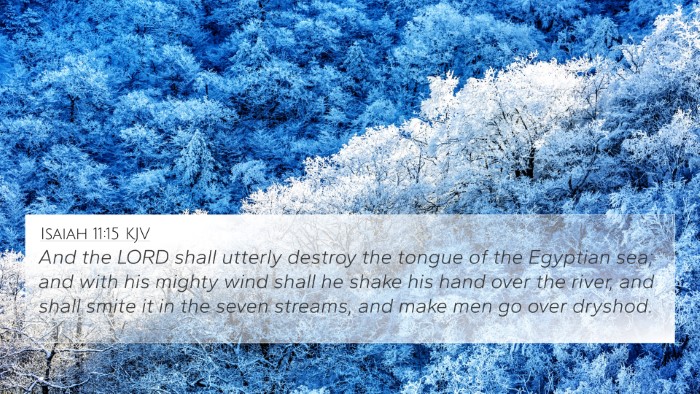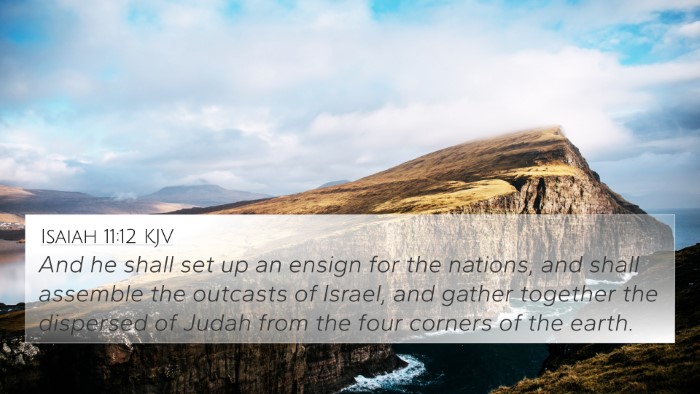Understanding Isaiah 13:2
Isaiah 13:2 reads: "Lift ye up a banner upon the high mountain, exult the voice unto them, shake the hand, that they may go into the gates of the nobles." This verse serves as a proclamation of warning and judgment, symbolizing the call to prepare for the impending calamities against Babylon.
Historical Context
The book of Isaiah was penned during a critical time in Israel's history. Isaiah prophesied during the tumultuous reigns of several kings of Judah, addressing both the moral decline of Israel and the prophetic visions of future events. Specifically, Isaiah 13 focuses on God's judgment against Babylon, emphasizing the significance of divine retribution against pride and idolatry.
Commentary Insights
Combining insights from various public domain commentaries provides a comprehensive understanding of Isaiah 13:2:
- Matthew Henry: Highlights the act of raising a banner as an ancient signal for gathering troops. The “high mountain” symbolizes a rallying point for God’s judgment against Babylon, indicating a biblical motif of security and strength in God's actions.
- Albert Barnes: Notes the urgency in the verse. The exclamation to “lift up a banner” serves as a call to action. It conveys the idea of God rallying nations against Babylon, suggesting the specifics of military preparedness and divine justice.
- Adam Clarke: Offers a historical interpretation, suggesting that this passage reflects a visual metaphor. The ‘gates of the nobles’ represent the entrance to the city’s power structures, indicating the thoroughness with which God’s judgment will invade Babylon's defenses.
Key Themes and Connections
This verse reveals multiple themes that connect to other scriptures:
- Divine Judgment: Biblical passages like Jeremiah 50:9 echo similar sentiments regarding the judgment upon Babylon, emphasizing God’s sovereign authority.
- God’s Sovereignty: The call for nations to assemble resonates with Psalm 2:1-5, illustrating the futility of nations plotting against God.
- Military Metaphors: The motif of a rallying banner is seen in Numbers 1:52, where Israel is instructed to signal its divisions of camp.
- Call to Action: The concept of raising a standard can be found in Isaiah 11:10, where a signal is raised for the nations, reflecting God's continued initiative in history.
- Response of Nobles: The passage also parallels Daniel 5, where the mighty fall before God's judgment, again showing God's power over earthly rulers.
- Theme of Warning: Similar alerts resonate throughout Ezekiel 33:3, where watchmen are called to warn the people of impending doom.
- Exaltation and Degradation: The call for voices to be raised also reflects themes in Philippians 2:10-11, where every knee shall bow, displaying God’s ultimate glory through judgment.
Bible Verse Cross-References
Several scriptures interrelate with Isaiah 13:2, illustrating the broader narrative of God’s judgment and righteousness:
- Isaiah 10:5 - "O Assyrian, the rod of mine anger, and the staff in their hand is mine indignation."
- Isaiah 47:11 - "But evil shall come upon thee; thou shalt not know from whence it riseth."
- Revelation 18:2 - "And he cried mightily with a strong voice, saying, Babylon the great is fallen, is fallen..."
- Isaiah 21:9 - "And behold, here cometh a chariot of men, with a couple of horsemen..."
- Joel 3:14 - "Multitudes, multitudes in the valley of decision: for the day of the Lord is near in the valley of decision."
- Psalm 60:4 - "Thou hast given a banner to them that fear thee, that it may be displayed because of the truth."
- Matthew 24:30 - "And then shall appear the sign of the Son of man in heaven..."
Thematic Bible Verse Connections
Isaiah 13:2 serves as a particular instance where thematic connections can be drawn throughout scripture:
- God’s Authority: This passage echoes throughout the Bible, reiterating that God controls history and nations, leading to the affirmation of His kingship.
- Warning and Preparation: The concept of being forewarned resonates deeply within both Testaments, urging believers to be vigilant (compare 1 Thessalonians 5:6).
- Judgment and Salvation: The dual nature of God's message, where judgment announces salvation for the faithful, extends the prophetic narrative (see Romans 8:1).
Conclusion
Isaiah 13:2 calls attention to God's sovereign justice, mobilizing nations as instruments of His will. Utilizing tools for Bible cross-referencing, believers can gain deeper insights into how sacred texts communicate themes of divine authority, judgment, and prophecy. The work of cross-referencing enriches the understanding of scriptural interconnections, bringing clarity and depth to the themes presented within Isaiah's prophecies. To fully uncover the wealth of meanings, one must commit to a thorough study of Biblical cross-references as demonstrated throughout these insights.
